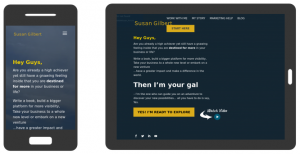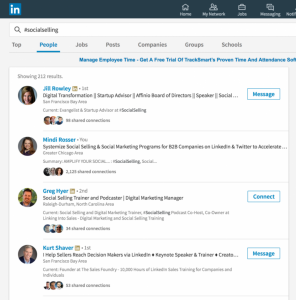Bias has a well-documented effect on reasoning. Bias can affect the processing of information and lead to beliefs that are incongruent with evidence and rational consideration. Bias is therefore expected to influence an individual’s susceptibility to misinformation online. For instance, if you absolutely (the bias) believe the earth is flat and inside a dome, then of course you will not be persuaded that Earth is a ball traveling around the sun, no matter how convincing the evidence presented to support this claim. And most likely, you will find lots of ‘support’ for your belief online. Bias is therefore likely to influence the ability to draw accurate inferences from available information.
Where does bias originate? It starts in the brain with the way we as humans encounter information every day. Information overload is common in this age of always-on screens, and access to literally anything at our fingertips. As a result, the brain has built-in ‘guards’ to avoid overwhelm. Bias is one of these guards: Bias is a pattern of processing information that favors our existing beliefs, expectations, or goals. It keeps our brains from having to process too much new information and having to reframe our understanding and belief systems. Most of the time, this is done unconsciously. Bias can therefore act as a strong filter to distort the perceived accuracy of incoming information. In fact, we are so sure about some of our beliefs at times that we have trouble accepting contrary evidence.
So where does social media fit into this? Bias can filter information as well from social media channels. Social media, by its nature, has the potential to promote exposure to ideas outside these filters that people might not otherwise regularly be exposed to. When we are faced with this new information, we will many times filter it out, respond negatively, or find others that agree with our positions. This would be fine in almost any other setting. This is how humans have survived for thousands of years. But, social media is not a passive platform. It has algorithmic programming that interfaces with, analyzes, and reinforces your position on a given subject. My social media feed looks very different than most other people. In other words, the medium becomes one with you and your thoughts and opinions. It gives you more of what you talk about, what you watch, and ultimately what you want. This further confirms daily what you are so ‘certain’ about, because there is so much ‘proof’ that is ‘easily’ seen online, and its obvious to you how ‘clear’ it is. Why can’t everyone see it?
Because they don’t. They are too busy taking in their own curated feed of what they see as the real world to them. See how this works? Try swapping your phone with someone and swipe thru their social media feeds. It will look very different than yours most likely in terms of content, ads, and the videos that are fed in.
Here are a few tips that can help with being aware of your own bias, and working toward a more helpful and ethical online experience.
1– Like things more generously. The more varied the content and perspectives you like, the more variety and color will show up in your own feed.
2– Pay attention to the amount and type of followers people have when you follow them. Do they have a small amount of ‘like-minded’ followers? Or do they have a varied amount and types of followers from different places and perspectives?
3– Change feeds to focus on recency rather than personalization. Facebook and Twitter allow users to view the most recent posts first. However, this particular setting is difficult to find and often reverts without warning to the default view. Changing this setting is worth the effort. It’s amazing how you can then see posts from accounts that have been hidden for years.
To wrap up, I want to be clear, bias is normal. We have all experienced it and live with it, including me. I see it daily. But that is the point. Let’s notice it in ourselves.
Originally published here.
Digital & Social Articles on Business 2 Community
(50)






